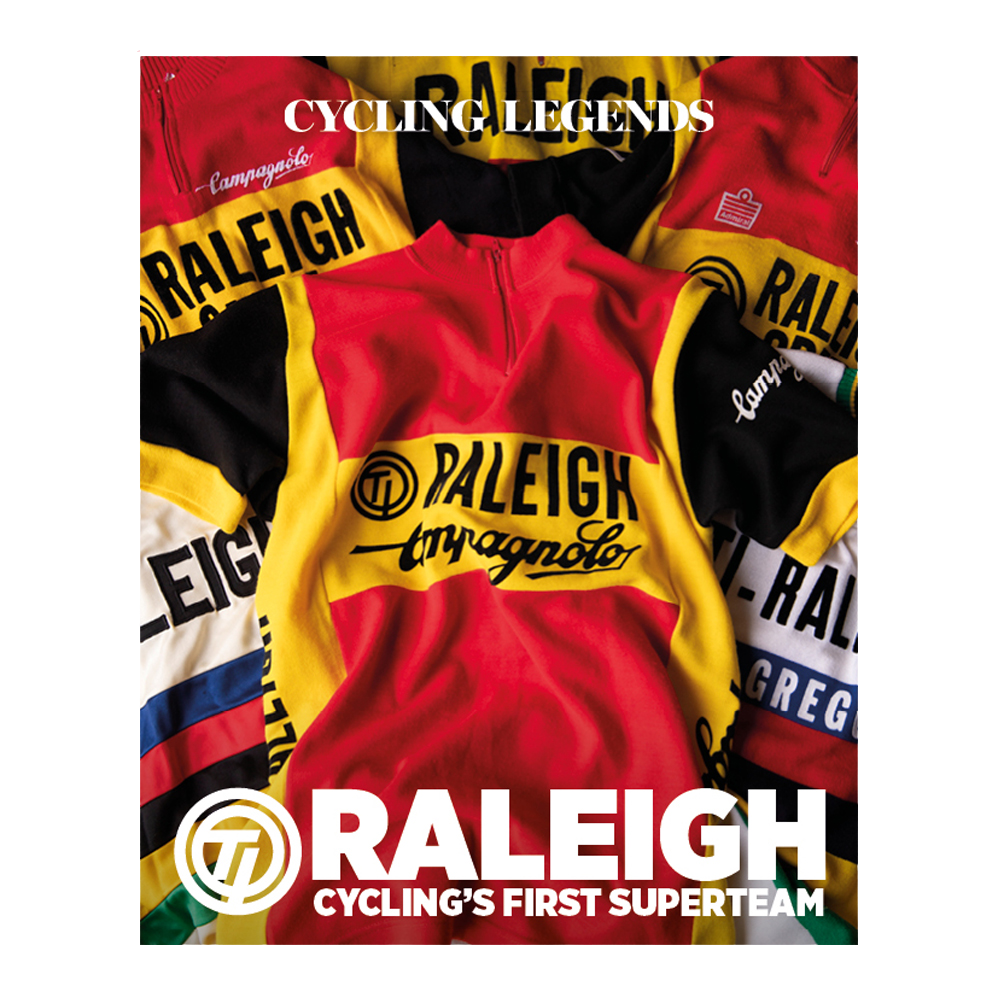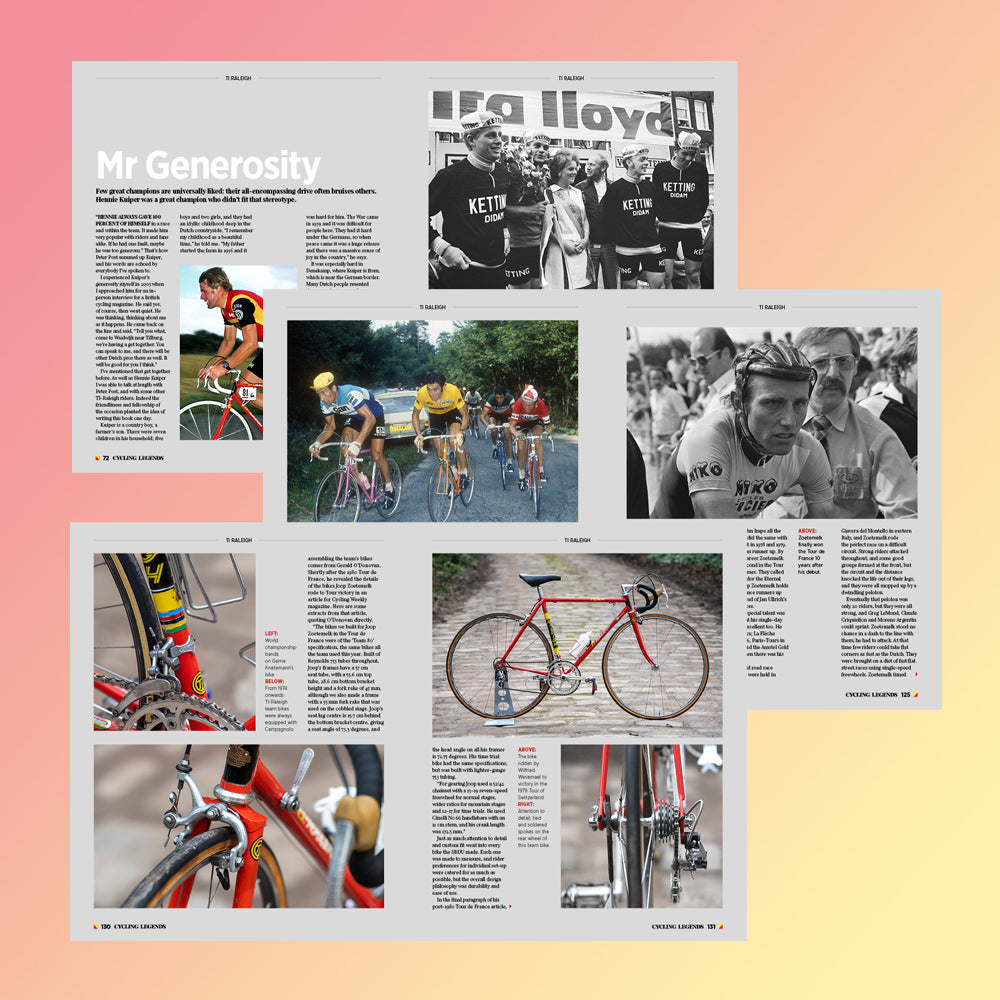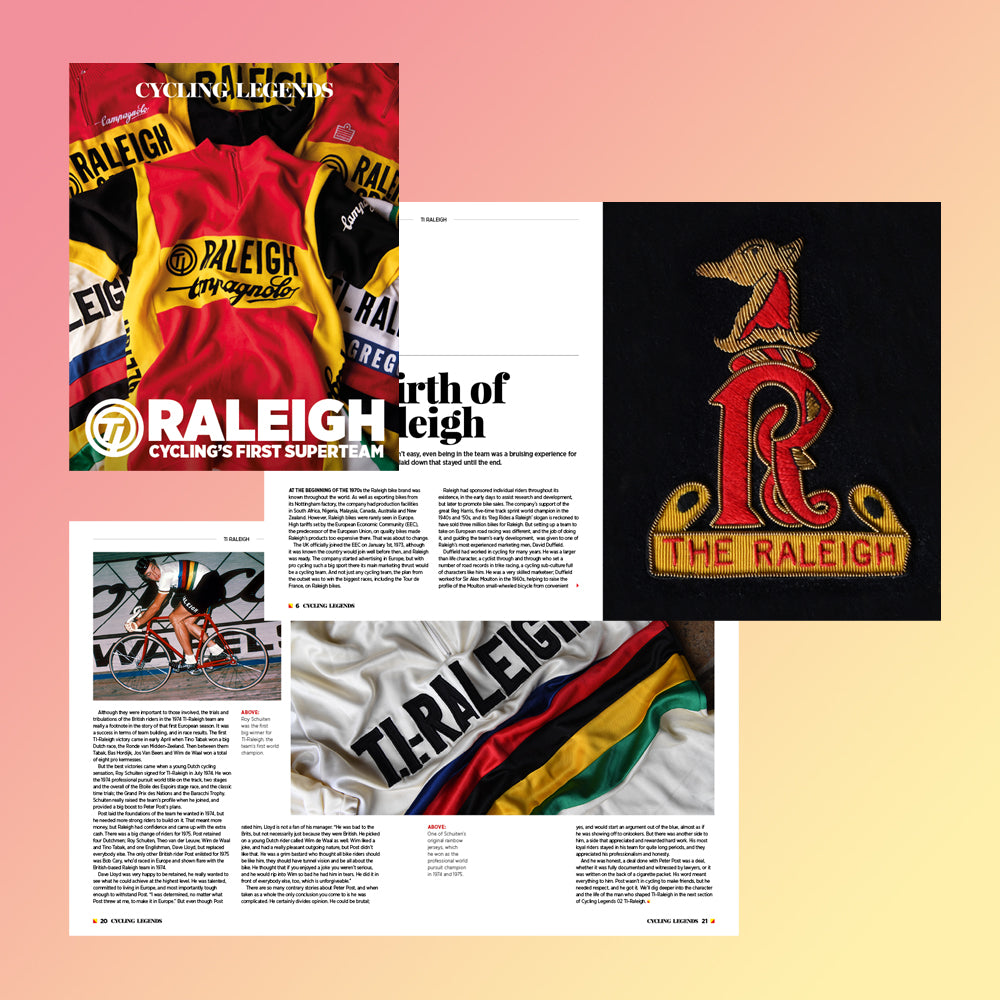QUALITY CYCLING CLOTHING SINCE 1996 - THE UK'S FIRST RETRO MANUFACTURER
QUALITY CYCLING CLOTHING SINCE 1996 - THE UK'S FIRST RETRO MANUFACTURER
RETRO APPAREL
COLLECTIONS
Cycling Clothing
ACCESSORIES
TI-Raleigh: Cycling's First Superteam
4.8 / 5.0
(5) 5 total reviews
TI-Raleigh was a game changer. Most big professional cycling teams from the 1940s onwards were built around one man. He was the leader and the rest were there to support him. All the post-War greats; Fausto Coppi, Louison Bobet, Rik Van Looy, Jacques Anquetil and Eddy Merckx had teams built around them. TI-Raleigh changed that.
TI-Raleigh showed there was another way to win big bike races, and it became the number one team of its generation because of it. Yes there would be a team leader going into a race, but TI-Raleigh was adaptable. It could switch; helpers became leaders and leaders became helpers. It was a new and very effective tactic, and one emulated by teams today.
Then there was TI-Raleigh’s technical back up, which was ground-breaking. From corporate clothing to bikes and equipment, TI-Raleigh had the best. Good enough wouldn’t do, everything had to be perfect. It meant the team showed a united face to its rivals; good well-organised riders with everything they needed, they always had a massive psychological advantage.
TI-Raleigh was the vision of its manager, Peter Post, a powerful but divisive character who knew cycling and knew how to win. His personality adds another layer to the team’s story, a story in which there were conflicts and casualties, as well as success.
The team won everything it set out to win, from classics to the Tour de France, and it won from the start to the finish of every year from 1975, when Post first had the team he wanted, to 1983 when Raleigh withdrew as headline sponsor and the riders split in two. Post created the team, but he also created that split.
It’s a fascinating story, and one that author Chris Sidwells has told with the help of many people who played a part in it; from Post and some of the riders, to bike designers and people working in the backroom. Their insight was invaluable in telling this story of big ambitions, big characters and very big victories.
- 150 pages
- Printed on the finest paper to the highest production standards
- Lavishly illustrated by over 200 colour and black and white photos, many of which have never been published before
Very interesting and entertaining read. I remember the Raleigh team from my earliest days as a cyclist myself, but I didn't know the full story behind this superteam. The book has many great photos.
This is a wonderful book. Chris Sidwells is one of my favourite cycling authors. So if you see anything written by him, buy it. You won`t be disappointed.
good book could have been five star if author had intelligence to produce in Hardbck
Excellent book well illustrated with great pictures to go with it.
high quality
Recently viewed products
You may also like
Subscribe to our newsletter for 10% off your first order!*
Sign up to get the latest Prendas news on sales, new releases and exclusive discounts! *excludes cycling shoes, helmets, bags, sunglasses & saddles







